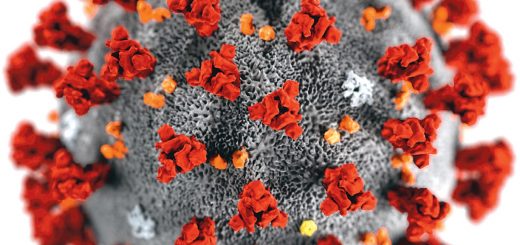Targeted Antitumor Drugs: Monoclonal Antibodies by TargetMol
Targeted antitumor drugs are a class of therapies that use specific structural molecules on tumor tissues or cells as targets, and use certain antibodies and ligands that can specifically bind to these target molecules for direct or directed treatment purposes.
Targeted antitumor drugs can be divided into two categories: small molecule drugs and monoclonal antibodies.
In recent years, monoclonal antibody drugs have developed rapidly and gradually become the main direction of development in the field of biopharmaceuticals.
Monoclonal antibodies are antibodies secreted by B lymphocytes, which can only produce one proprietary antibody against one antigenic determinant cluster. Therefore, they have highly specific physicochemical properties, single biological activity, and strong specificity in binding to antigens. For this reason, it is also referred to as a „biological missile“, and most of the existing antibody drugs fall into this category.
Targeted antibodies have defined a new concept of „Tumor Therapy“ that involves a variety of tumor-related signaling pathways and targets, for example, in the treatment of solid tumors, the most commonly targeted proteins are epidermal growth factor receptor (EGFR), vascular endothelial growth factor (VEGF) and epidermal growth factor receptor- (HER/neu, or EGFR).
In recent years, immunotherapy has been one of the most prominent research methods in „Tumor Therapy“, and therefore „immune checkpoints“ have received much attention.
Immune checkpoints are sites that have an inhibitory effect on immune regulation during an immune response.
After the immune cells involved in the antitumor immune response are activated, the expression of various receptors on their surfaces are upregulated and bind to the corresponding ligands highly expressed on the surface of tumor cells, resulting in an inhibitory effect on the immune response and thus downregulating the intensity of the tumor-associated immune responses.
In the process of tumor occurrence and development, immunotherapy is used to enhance the immune function of the
body by inhibiting highly expressed immune checkpoint molecules and restoring the recognition ability of T cells, thereby
clearing or slowing down the progression of tumors.
The programmed death (PD-1 ) receptor and PD-1 /PD-L1 inhibitors are particularly notable among immunotherapies.
To date, several PD-1/PD-L1 antibodies have been marketed, such as Avelumab, Nivolumab, and Pembrolizumab, and have thus become the star products of recent years.
PD-1/PD-L1 inhibitors are also known as immune checkpoint inhibitors.
During tumorigenesis, tumor cells use PD-L1 to bind to PD-1 of T cells, „deceive“ T cells, evade T cell recognition, and continue to damage the body.
PD-L1/PD-1 antibodies can help T cells restore their ability to recognize and kill tumor cells by unmasking them from their camouflage. The most widely studied and used immune checkpoint inhibitors are PD-1, PD-L1 and CTLA-4 inhibitors.
| Cat. No. | Products | CAS Number | Targets | Size |
| T9901 | Adalimumab | 331731-18-1 | NF-α | 5mg |
| T9902 | Atezolizumab | 1380723-44-3 | HPD-L1 | 5mg |
| T9903 | Avelumab | 1537032-82-8 | PD-L1 | 5mg |
| T9904 | Bevacizumab | 216974-75-3 | VEGF | 5mg |
| T9905 | Cetuximab | 205923-56-4 | EGFR | 5mg |
| T9906 | Ipilimumab | 477202-00-9 | CTLA-4 | 5mg |
| T9907 | Nivolumab | 946414-94-4 | PD-1/PD-L1 Interaction | 5mg |
| T9908 | Pembrolizumab | 1374853-91-4 | PD-1 | 5mg |
| T9909 | Pertuzumab | 380610-27-5 | HER2 | 5mg |
| T9910 | Rituximab | 174722-31-7 | CD20 | 5mg |
| T9911 | Tocilizumab | 375823-41-9 | IL-6R | 5mg |
| T9912 | Trastuzumab | 180288-69-1 | HER2 | 5mg |
| T9913 | Ustekinumab | 815610-63-0 | IL-12,IL-23 | 5mg |
| T9914 | Vedolizumab | 943609-66-3 | Integrin | 5mg |
| T9915 | Eculizumab | 219685-50-4 | Complement Protein C5 | 5mg |
| T9916 | Alirocumab | 1245916-14-6 | PCSK9 | 5mg |
| T9917 | Denosumab | 615258-40-7 | RANK Ligand | 5mg |
| T9918 | Daratumumab | 945721-28-8 | CD38 | 5mg |
| T9919 | Alemtuzumab | 216503-57-0 | CD52 | 5mg |
| T9920 | Evolocumab | 1256937-27-5 | PCSK9 | 5mg |
| T9921 | Infliximab | 170277-31-3 | TNF-α | 5mg |
| T9922 | Matuzumab | 339186-68-4 | EGFR | 5mg |
| T9923 | Nimotuzumab | 828933-51-3 | EGFR | 5mg |
| T9924 | Obinutuzumab | 949142-50-1 | CD20 | 5mg |
| T9924 | Obinutuzumab | 949142-50-1 | CD20 | 5mg |
| T9926 | Omalizumab | 242138-07-4 | IgE | 5mg |
| T9926 | Omalizumab | 242138-07-4 | IgE | 5mg |
| T9928 | Ranibizumab | 347396-82-1 | VEGF | 5mg |
| T9929 | Ramucirumab | 947687-13-0 | VEGFR2 | 5mg |
| T9930 | Secukinumab | 875356-43-7 | IL17A | 5mg |
| T11126 | Durvalumab | 1428935-60-7 | PD-L1/PD-1 | 5mg |
Check out more interesting articles here.



